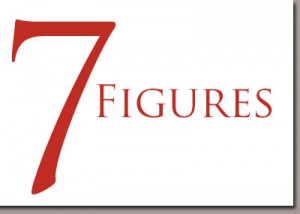 A new survey by NPR and Harvard University reports the self-reported experiences of health care consumers across the country, in states that have (New Jersey, Ohio, Oregon) and have not (Florida, Kansas, Texas) expanded Medicaid, and in one (Wisconsin) that did not have to expand Medicare.
A new survey by NPR and Harvard University reports the self-reported experiences of health care consumers across the country, in states that have (New Jersey, Ohio, Oregon) and have not (Florida, Kansas, Texas) expanded Medicaid, and in one (Wisconsin) that did not have to expand Medicare.
Here are seven figures you should know from the report:
1. When asked about its effects on the people of their state, more than a third (35 percent) of adults say they believe national health reform has directly helped residents, while a similar proportion (27 percent) say they believe the law has directly harmed residents. On a more personal level, most (56 percent) Americans do not believe the Affordable Healthcare Act (i.e., Obamacare) has directly impacted them. Among those who believe it had an impact, more say it has directly hurt them (25 percent), as individuals, than those who say national health reform has directly helped them (15 percent).
2. One-third (33 percent) of adults in the U.S. believe the health care they receive is excellent and just under half (46 percent) say their care is good, while just over one in six (18 percent) say it is fair or poor.
3. Nearly three-fourths (74 percent) of adults in the U.S. believe the health care they receive has stayed about the same over the past two years, while less than a quarter (23 percent) believe it has gotten better or worse.
4. Most adults in the U.S. (60 percent) say the cost they personally pay for their health care is reasonable, while just under three in ten (29 percent) disagree, saying the amount they pay is unreasonable.
5. Even though most (55 percent) Americans reflect positively on their state’s health care system, saying it is excellent or good, few give their state top marks. Just one in six (17 percent) say the health care system in their state is excellent, while more than two in five (42 percent) adults in the U.S. say it is fair or poor.
6. Only 38 percent of adults in the U.S. had positive things to say about the country’s health care system, and fewer than one in ten (9 percent) gave it top marks. In contrast, more than three in five (61 percent) U.S. adults say the nation’s health care system is fair or poor.
7. One in seven (14 percent) adults in the U.S. says it has gotten harder to see a doctor in the past two years, whereas nearly three-quarters (74 percent) say their ability to see a doctor has stayed about the same. In contrast, just one in ten (10 percent) say it has gotten easier to see a provider in recent years.

